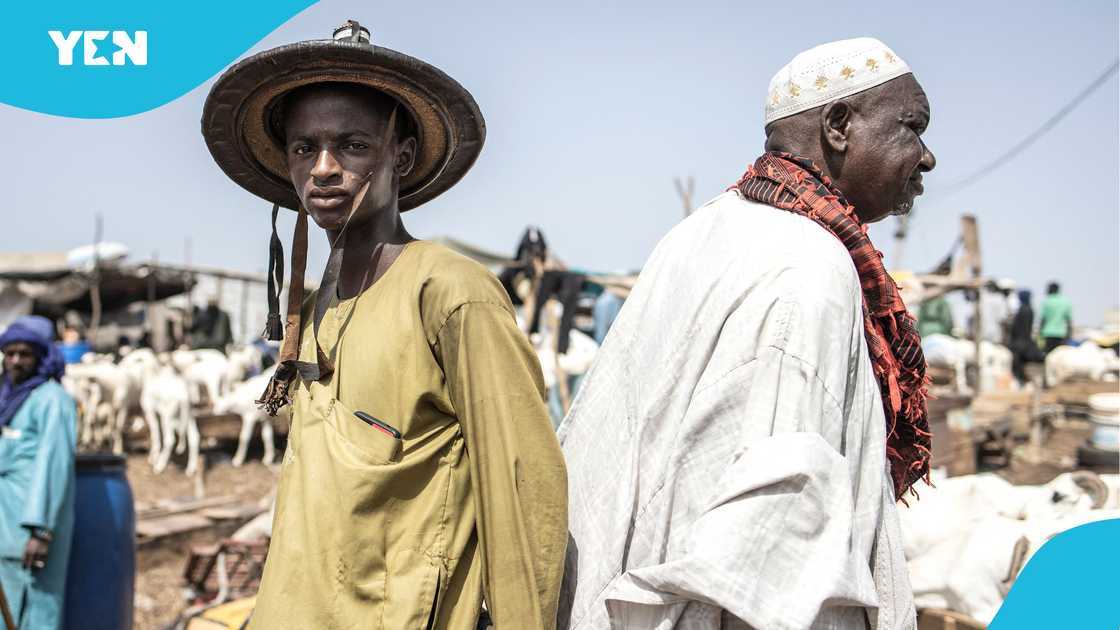- Angry youth in Bakpa-Kebenu forcibly vandalised a Chinese-owned fish farm over fishing rights
- Locals accuse the Chinese operators of expanding their fish farm beyond their permitted boundaries
- Communication between the community and the Chinese operators remains strained, making the situation uncertain
A large-scale fish farm, owned and managed by Chinese nationals in Bakpa-Kebenu, Central Tongu District, was stormed and vandalised by angry local youth a few weeks ago.

Source: Getty Images
The incident is understood to be a protest against the company’s operations, which locals claim are negatively affecting their traditional fishing activities in the River Volta.
Eyewitnesses reported a rapid escalation of the demonstration, with protesters breaching the facility and damaging machinery before security personnel or local authorities could intervene.
The situation has since stabilised and is being closely monitored to prevent further clashes, with the Chinese operators reportedly back at work.
Tensions rise over communication and fishing disputes
The protest highlights long-standing friction between local fishermen and large commercial aquaculture operations over vital resources and access to fishing grounds.
Abraham Aho, the Assemblymember for Bakpa-Kebenu, shed light on the underlying issues and the challenges in communicating with the farm’s management.
“The Chinese themselves don’t listen. As an assembly member, when I go there at times, they would keep me at the gate until I leave. So, I don’t want to talk about their matter, and I don’t want to ask them about the incident because they don’t listen,” Aho told YEN.com.gh.
The assembly member further elaborated on the difficulties in speaking to them.
He said, “When you try talking to them (the Chinese), they will say they don’t understand English, and so they don’t give anyone a chance to speak. Even when the (Central Tongu) Assembly wants to engage them, they claim the absence of their interpreter as an excuse not to attend the meeting.”
Expansion beyond boundaries fuels anger
A primary source of contention, according to Assemblymember Aho, is the perceived encroachment of the fish farm beyond its designated area.
Aho explained that they are operating beyond the boundaries of the site on the River Volta, given to them for their fish farm. This is what the youths in the area are angry about.
This sentiment was echoed by Akorli, a local fisherman, who voiced the community’s determination to protect their livelihoods.
“They have their place, but they are now extending into areas where we fish. If they don’t stop their expansion activities, we will not sit idly by,” Akorli told YEN.com.gh, underscoring the potential for further conflict if the expansion continues.
Despite the incident, the Chinese operators remain on site, continuing their fish-farming activities.
Aho confirmed that the Chinese are still working on the site.
This highlights the ongoing nature of the dispute and the need for a sustainable resolution that addresses the concerns of both the local community and the Chinese farmers.

Source: Getty Images
Dzodze herdsmen defy eviction, tensions rise locally

Read also
Galamsey: Chinese man called to the bar to start educating his compatriots on Ghana’s laws
Previously, YEN.com.gh Fulani herdsmen in Dzodze defied the eviction deadline and remained, grazing their cattle in the same area they had been asked to vacate.
Meanwhile, the district coordinator disputed the deadline date, saying September 30 had been the set cut-off, not September 1.
Local authorities feared that violence might erupt if herdsmen failed to evacuate their cattle from the communities.
Source: YEN.com.gh
Source: Yen.com.gh












